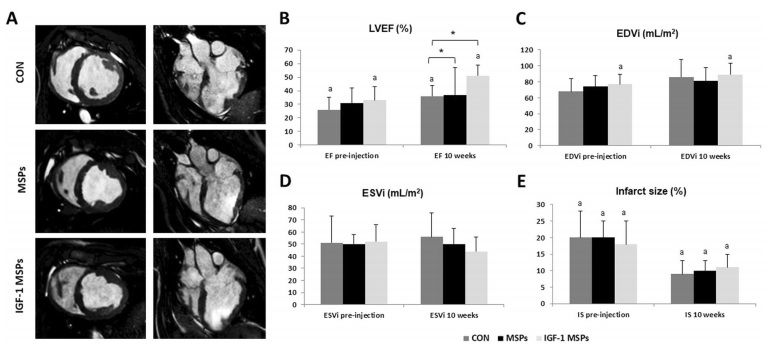Microencapsulated Insulin-Like Growth Factor-1 therapy improves cardiac function and reduces fibrosis in a porcine acute myocardial infarction model
Researchers of NANBIOSIS Units at JUMISC. led by Verónica Crisóstomo, Scientific Director of NANBIOSIS unit 24 of Medical Imaging, have just published an article in the Journal Scientific Report
Cardiovascular diseases, especially ischemic heart disease, are the leading cause of mortality worldwide. Conventional treatments have contributed to reduce early mortality after an acute myocardial infarction, but do not recover the damaged myocardial tissue. In the last two decades stem cell therapy has been studied for that purpose. Nowadays it is known now that stem cells are able to secrete combinations of biomolecules that modulate the composition of the damaged cardiac environment contributing to functional tissue repair by stimulating the migration, proliferation and survival of endogenous cardiac progenitor cells as well as attenuating fibrosis and modulating inflammation. Among the secreted substances, there are different cytokines, extracellular vesicles and growth factors including insulin-like growth factor-1 (IGF-1). Our researchers’ goal in this work has been to assess the safety and effectiveness of an intracoronary infusion of microencapsulated IGF-1 after acute myocardial infarction in a clinically relevant swine model of reperfused myocardial infarction.
Large animal studies have been conducted by the ICTS “NANBIOSIS”, more specifically by Units 14, 21, 22 and 24 of the Jesús Usón Minimally Invasive Surgery Centre.
Article:
Báez-Díaz, C., Blanco-Blázquez, V., Sánchez-Margallo, F. et al. Microencapsulated Insulin-Like Growth Factor-1 therapy improves cardiac function and reduces fibrosis in a porcine acute myocardial infarction model. Sci Rep 10, 7166 (2020).









